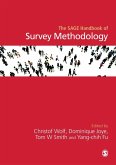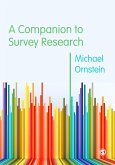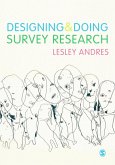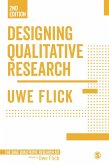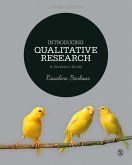Between the comfort of using a medium they use daily and the perceived easiness of access and use, students are increasingly quick to choose online methods for their research projects. However getting data online isn't as easy as it seems. No matter how data is collected (through existing materials, through elicited responses, or through work with participants) or what type of online data is used (e.g. blogs, websites, interviews, etc.), there are a lot of unique and complex considerations that must be factored in to every step of the research process. This Little Quick Fix boils down all these potentially thorny issues into a speedy guide so students thinking about working with online data can be prepared for (and avoid) any unexpected circumstances like access issues or ethical dilemmas. It will also help students decide what, if any, online data is best suited to their particular research question so they don't end up fighting unnecessary complications for little benefit. It covers: What types of data collection do researchers conduct online? How do I choose which type(s) fit my research? How can I find, and get permission to use, data that exists online? How can I find, and gain consent from, participants online? How can I interact with participants online to collect data? What practical steps should I take to prepare for online research?
Little Quick Fix titles provide quick but authoritative answers to the problems, hurdles, and assessment points students face in the research course, project proposal, or design-whatever their methods learning is.
Little Quick Fix titles provide quick but authoritative answers to the problems, hurdles, and assessment points students face in the research course, project proposal, or design-whatever their methods learning is.
- Lively, ultra-modern design; full-colour, each page a tailored design.
- An hour's read. Easy to dip in and out of with clear navigation enables the reader to find what she needs-quick.
- Direct written style gets to the point with clear language. Nothing needs to be read twice. No fluff.
- Learning is reinforced through a 2-minute overview summary; 3-second summaries with super-quick Q&A.
- DIY tasks create a work plan to accomplish a task, do a self-check quiz, solve a problem, get students to what they need to show their supervisor.
- Checkpoints in each section make sure students are nailing it as they go and support self-directed learning.
- How do I know I'm done? Each Little Quick Fix wraps up with a final checklist that allows the reader to self-assess they've got what they need to progress, submit, or ace the test or task.
Dieser Download kann aus rechtlichen Gründen nur mit Rechnungsadresse in A, D ausgeliefert werden.



